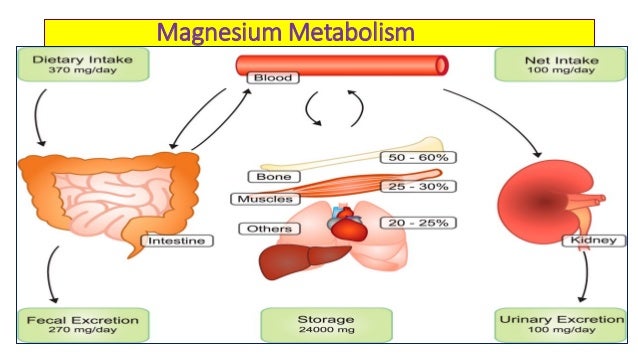What is Magnesium and Why is it Important?
Magnesium is an essential mineral that plays a critical role in numerous bodily functions, including muscle contraction, nerve function, and energy production. It is involved in over 300 biochemical reactions in the human body, making it a vital nutrient for overall health and well-being. Magnesium also helps regulate blood pressure, maintain healthy bones, and support immune system function.
The recommended daily intake of magnesium varies depending on age, gender, and other factors. According to the National Institutes of Health (NIH), adult men should aim for 400-420 milligrams (mg) per day, while adult women should aim for 310-320 mg per day. Pregnant women and older adults may require higher amounts, while children and adolescents have lower recommended intakes based on their age and gender.
Magnesium deficiency can lead to a range of symptoms, including muscle cramps, fatigue, and heart palpitations. In severe cases, magnesium deficiency can result in hypocalcemia (low calcium levels), hypokalemia (low potassium levels), and other serious health complications. Long-term magnesium insufficiency has been linked to an increased risk of chronic diseases such as type 2 diabetes, hypertension, and osteoporosis.
How Much Magnesium Does the Body Need?
The recommended daily intake of magnesium varies depending on age, gender, and other factors. According to the National Institutes of Health (NIH), adult men should aim for 400-420 milligrams (mg) per day, while adult women should aim for 310-320 mg per day. Pregnant women and older adults may require higher amounts, while children and adolescents have lower recommended intakes based on their age and gender.
It is important to note that individual magnesium needs may vary based on factors such as genetics, medical conditions, and medication use. For example, individuals with gastrointestinal disorders such as Crohn’s disease or celiac disease may have impaired magnesium absorption, leading to a higher risk of deficiency. Similarly, certain medications such as diuretics and proton pump inhibitors can increase magnesium excretion and deplete magnesium levels in the body.
Meeting the recommended daily intake of magnesium through diet alone can be challenging for some individuals. However, incorporating magnesium-rich foods such as leafy green vegetables, nuts, seeds, and whole grains into a balanced diet can help ensure adequate magnesium intake. Additionally, magnesium supplements are available for those who may require additional magnesium support.
When considering magnesium supplementation, it is important to consult with a healthcare professional to determine appropriate dosages and timing for supplementation. This is especially important for individuals with medical conditions or those taking medications, as magnesium supplements can interact with certain drugs and may not be suitable for all individuals.
Factors Influencing Magnesium Absorption and Excretion
Several factors can affect magnesium absorption and excretion in the body, including age, gender, genetics, and certain medical conditions or medications. Understanding these factors can help individuals ensure adequate magnesium intake and prevent deficiency.
Age is a significant factor influencing magnesium absorption and excretion. Older adults, for example, may have impaired magnesium absorption due to decreased gastric acid secretion and reduced intestinal absorption. Additionally, older adults may have increased magnesium excretion due to decreased renal function, leading to a higher risk of magnesium deficiency.
Gender can also play a role in magnesium absorption and excretion. Women, particularly those who are pregnant or lactating, may require higher amounts of magnesium due to increased physiological demands. Additionally, hormonal fluctuations during the menstrual cycle can affect magnesium levels, leading to symptoms such as premenstrual syndrome (PMS).
Genetics can also impact magnesium absorption and excretion. Certain genetic polymorphisms, such as variations in the TRPM6 gene, can affect magnesium transport and lead to decreased magnesium levels in the body. Similarly, genetic variations in the CYP24A1 gene can affect vitamin D metabolism, which is critical for magnesium absorption and regulation.
Medical conditions and medications can also impact magnesium absorption and excretion. Gastrointestinal disorders such as Crohn’s disease, celiac disease, and inflammatory bowel disease (IBD) can impair magnesium absorption, leading to deficiency. Similarly, medications such as diuretics, proton pump inhibitors, and antibiotics can increase magnesium excretion and deplete magnesium levels in the body.
To ensure adequate magnesium absorption and prevent deficiency, individuals should aim to consume a balanced diet rich in magnesium-rich foods such as leafy green vegetables, nuts, seeds, and whole grains. Additionally, individuals should consult with a healthcare professional before starting any magnesium supplementation regimen, especially if they have medical conditions or take medications that may affect magnesium absorption and excretion.
Signs and Symptoms of Magnesium Deficiency
Magnesium deficiency, also known as hypomagnesemia, can lead to a range of signs and symptoms affecting various bodily processes. Identifying these signs and symptoms is crucial for early detection and prevention of long-term health consequences.
Common signs and symptoms of magnesium deficiency include muscle cramps, twitches, and spasms, particularly in the legs and feet. This is due to the role of magnesium in muscle function and relaxation. Additionally, magnesium deficiency can lead to fatigue, weakness, and difficulty concentrating, affecting energy production and cognitive function.
Cardiovascular symptoms of magnesium deficiency include heart palpitations, arrhythmias, and hypertension. This is due to the role of magnesium in regulating heart rhythm and blood pressure. In severe cases, magnesium deficiency can lead to more serious health complications such as coronary artery spasms, heart attacks, and stroke.
Gastrointestinal symptoms of magnesium deficiency include nausea, vomiting, and loss of appetite. This is due to the role of magnesium in digestion and nutrient absorption. Additionally, magnesium deficiency can lead to bone and joint pain, as magnesium is essential for maintaining healthy bones and joints.
Long-term magnesium insufficiency has been linked to an increased risk of chronic diseases such as type 2 diabetes, hypertension, and osteoporosis. This is due to the role of magnesium in regulating blood sugar levels, blood pressure, and bone density.
To prevent magnesium deficiency, individuals should aim to consume a balanced diet rich in magnesium-rich foods such as leafy green vegetables, nuts, seeds, and whole grains. Additionally, individuals should consult with a healthcare professional before starting any magnesium supplementation regimen, especially if they have medical conditions or take medications that may affect magnesium absorption and excretion.
Food Sources of Magnesium
Magnesium is an essential mineral found in a variety of foods, particularly those that are plant-based and unprocessed. Incorporating these foods into a balanced diet can help ensure adequate magnesium intake and prevent deficiency.
Leafy green vegetables such as spinach, kale, and collard greens are excellent sources of magnesium. This is due to their high chlorophyll content, which contains magnesium at its center. One cup of cooked spinach, for example, contains approximately 157 mg of magnesium, or 39% of the recommended daily intake (RDI) for women and 32% for men.
Nuts and seeds are also rich in magnesium. Almonds, cashews, pumpkin seeds, and sunflower seeds are all excellent sources, with one ounce of almonds containing approximately 80 mg of magnesium, or 20% of the RDI for women and 16% for men.
Whole grains such as brown rice, quinoa, and whole wheat bread are also good sources of magnesium. This is due to their high fiber content, which can help improve magnesium absorption in the body. One cup of cooked brown rice, for example, contains approximately 86 mg of magnesium, or 22% of the RDI for women and 18% for men.
Other magnesium-rich foods include legumes such as black beans, chickpeas, and lentils, as well as avocados, bananas, and dark chocolate. It is important to note that processing and cooking can reduce the magnesium content of these foods, so consuming them in their whole, unprocessed form is recommended.
To incorporate these magnesium-rich foods into a balanced diet, consider the following tips:
- Add leafy green vegetables to salads, smoothies, or sautéed side dishes.
- Top oatmeal, yogurt, or salads with nuts and seeds.
- Choose whole grains such as brown rice, quinoa, or whole wheat bread over refined grains.
- Incorporate legumes into soups, stews, or grain bowls.
- Snack on fresh fruits and vegetables such as avocados, bananas, or dark chocolate.
Supplemental Magnesium: Types and Dosages
For individuals who may not be able to meet their magnesium needs through diet alone, supplementation may be necessary. There are various forms of magnesium supplements available, each with its own unique absorption rate and potential benefits.
Magnesium citrate is a highly bioavailable form of magnesium, meaning it is easily absorbed by the body. It is often recommended for individuals experiencing constipation, as it can help promote bowel regularity. A typical dosage of magnesium citrate is between 150-300 mg per day, divided into two or three doses.
Magnesium oxide is a less bioavailable form of magnesium, but it is often used in over-the-counter antacids and laxatives. It can be helpful for individuals experiencing heartburn or indigestion, as well as those experiencing constipation. A typical dosage of magnesium oxide is between 400-1200 mg per day, divided into two or three doses.
Magnesium glycinate is a highly bioavailable form of magnesium that is often recommended for individuals experiencing anxiety or insomnia, as it can help promote relaxation and calmness. It is also less likely to cause gastrointestinal side effects than other forms of magnesium. A typical dosage of magnesium glycinate is between 100-300 mg per day, divided into two or three doses.
When it comes to dosage, it is important to follow the recommended guidelines provided by the manufacturer or a healthcare professional. It is also recommended to start with a lower dosage and gradually increase over time, as needed. Additionally, it is important to note that magnesium supplements can interact with certain medications, such as antibiotics and blood pressure medications, so it is important to consult with a healthcare professional before starting any supplementation regimen.
In terms of timing, magnesium supplements can be taken with or without food, depending on the form of magnesium and individual preferences. However, taking magnesium supplements with food may help reduce the risk of gastrointestinal side effects. It is also recommended to take magnesium supplements in the evening, as they can help promote relaxation and sleep.
Potential Risks and Interactions of Magnesium Supplementation
While magnesium supplementation can be beneficial for individuals who are deficient or at risk of deficiency, there are potential risks and interactions to be aware of. Gastrointestinal side effects such as diarrhea, nausea, and cramping can occur with high doses of magnesium supplements, particularly magnesium oxide. These side effects can be reduced by taking lower doses or switching to a more bioavailable form of magnesium, such as magnesium citrate or glycinate.
Drug interactions are also a concern with magnesium supplementation. Magnesium can interact with certain medications, such as antibiotics, blood pressure medications, and diuretics, reducing their effectiveness or increasing their side effects. It is important to consult with a healthcare professional before starting any magnesium supplementation regimen, particularly if taking medication or experiencing medical conditions.
Certain medical conditions can also affect magnesium absorption and excretion, making supplementation contraindicated. For example, individuals with kidney disease or impairment may have difficulty excreting magnesium, leading to toxic levels in the body. Similarly, individuals with heart or gastrointestinal conditions may be at risk of magnesium toxicity, which can cause symptoms such as muscle weakness, difficulty breathing, and irregular heartbeat.
To minimize the risks and interactions associated with magnesium supplementation, it is important to follow recommended dosages and consult with a healthcare professional before starting any supplementation regimen. It is also important to monitor magnesium levels through blood or urine tests, particularly for individuals at risk of deficiency or toxicity.
In summary, while magnesium supplementation can be beneficial for individuals who are deficient or at risk of deficiency, there are potential risks and interactions to be aware of. By following recommended dosages, consulting with healthcare professionals, and monitoring magnesium levels, individuals can safely and effectively supplement their magnesium intake.
Monitoring Magnesium Levels: Testing and Consulting Healthcare Professionals
While it is important to ensure adequate magnesium intake through diet and supplementation, it is equally important to monitor magnesium levels to prevent deficiency or toxicity. Magnesium levels can be monitored through blood or urine tests, which can help identify any underlying issues or imbalances.
For individuals who are at risk of magnesium deficiency or have underlying medical conditions, regular monitoring of magnesium levels may be necessary. This is particularly important for individuals with gastrointestinal or kidney conditions, as well as those taking medications that may affect magnesium absorption and excretion.
Consulting with a healthcare professional before starting any magnesium supplementation regimen is also crucial. Healthcare professionals can provide guidance on appropriate dosages, forms of magnesium, and potential risks and interactions. They can also help monitor magnesium levels and adjust supplementation regimens as needed.
It is important to note that while magnesium supplementation can be beneficial for individuals who are deficient or at risk of deficiency, excessive supplementation can lead to toxicity. Symptoms of magnesium toxicity can include diarrhea, nausea, vomiting, muscle weakness, and difficulty breathing. In severe cases, magnesium toxicity can lead to heart arrhythmias and cardiac arrest.
To prevent magnesium toxicity, it is important to follow recommended dosages and consult with a healthcare professional before starting any supplementation regimen. It is also important to monitor magnesium levels through blood or urine tests, particularly for individuals at risk of deficiency or toxicity.
In summary, monitoring magnesium levels through blood or urine tests and consulting with healthcare professionals before starting any magnesium supplementation regimen is crucial for preventing deficiency or toxicity. By following recommended dosages and regularly monitoring magnesium levels, individuals can safely and effectively supplement their magnesium intake.







